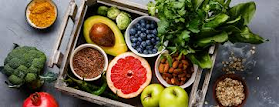The healthy eating is the one of best wide way to maintain your good health.Here I have tried my best to bring that all good ways to help for your good health. show that dysbiosis, or imbalance of your intestinal microflora, can contribute to all kinds of health problems — metabolic diseases such as obesity and diabetes, heart disease, immune and endocrine diseases, cancer, arthritis, and complications. circulatory system, even cognition - aging and Alzheimer's disease.
Thus, billions of microbes, or microorganisms, play a vital role in your whole life — meaning that what you feed your bugs is very important. Establishing healthy eating habits may be even more important for intestinal health as you grow older, suggests a study from the National Institute on Aging.
As people get older, more and more drugs are used, which can have a detrimental effect on the gut, ”said Sydney Greene, MS, RDN, a member of our board of medical professionals.
Here are a few tips from nutritionists on how to keep your gut healthy as you grow older, and for more gut health advice, here's what science has to say about Popular Foods That Can Improve Your Intestinal Health.
• _Get fiber in your stomach.
The trick to getting your intestines back to normal is to establish eating habits that fit the microbiome, first by fertilizing your intestines with fiber.
It is important for consumers to be rich in fiber, fruits and vegetables to improve intestinal health, "Greene said.
Fiber is a fuel that feeds bacteria to grow in value and is very diverse. A large and varied number of bacteria create a mucous barrier that connects our intestines, which reduces inflammation throughout the body and protects against toxins from leaking into the intestinal wall, a condition called "leaky gut.
• ..Stop refining.
Reducing your consumption of refined flour products and sugars from snacks and beverages goes hand in hand with high fiber foods. Make a habit of skipping white bread and baked goods as much as possible while switching to complex carbohydrates such as whole oats, quinoa, brown rice, and sweet potatoes, says Laura Krauza, MS, RDN, of the Waistline Dietitian.
• Fill cooked food.
While you make it a habit to eat foods high in fiber, work with other naturally occurring foods. Bacteria grow well in preserved foods such as sauerkraut, naturally pickled cucumber, kimchi, kefir, and yoghurt.
"I recommend that you add at least one probiotic-rich diet to your daily diet," Greene said.
They provide an influx of beneficial probiotics while lowering the pH of your intestines, making them less susceptible to bad bacteria.
For a more detailed description, What Happens to You When You Eat Raw Foods.
• Do not resist starch; eat the insensitive.
You may have heard of this derogatory carbohydrate called starchy starch. It gains its reputation by resisting the digestive tract and continuing to the large intestine as its fibers ferment into a prebiotic that feeds the healthy intestines.
This is very important for our immune system and for helping us stay strong, said intestinal health expert Kara Landau, RD, and founder of Uplift Food. waist. "
Resistant starch is found in cooked and cooled grains such as lentils, legumes, legumes such as white beans, and green bananas. Landau recommends using starchy flour that is resistant to baking.
• Load lactobacillus.
We are sure you are aware of the benefits of probiotic yoghurt. You may also know that yoghurt is very good at increasing the health-promoting species of Lactobacillus. But did you know that cheese is another good source of milk for intestinal bacteria?
"Cheese is good for your intestines; it has its microbiome, the result of its first culture," said William W. Li, MD, author of Eat to Beat Disease: The New Science of How Your Body Canal Itself.Parmigiano- Reggiano, cheese The famed firm of Parma, Italy, is rich in Lactobacillus casei and Lactobacillus rhamnosus, a study that suggests it may be beneficial against gastroenteritis, diabetes, obesity and cancer, says Drs.
• Eat less meat .......
Eating meat is difficult for your microbiome, "says Dr.
How? Well, it's very simple. The more protein you eat, the less space you have in your plant diet which provides the fiber of the diet your microbiome needs. Low fiber leads to an unhealthy ecosystem of gut bacteria.
"Many animal proteins convert viruses into behavior that causes inflammation of the intestines," he said.
By eating less meat, you can reduce the harmful effects of inflammation. And because many meat products are highly processed, they contain chemical additives and antibodies that destroy the health-promoting bacteria.
• Eat less.
Another strategy to promote a healthy gut microbiome may not be related to what you eat but when and how often. A study in the journal Nutrients explored how fasting and fasting could contribute to the formation of bacteria in the gut.
The findings point to similar health benefits research showing eating breakfast, eating more calories earlier in the morning than at night, and fasting, i.e. reduced inflammation, improved cell regeneration, and lower abdominal stress.
Also, the researchers found one more important factor: an increase in microbial diversity in the gut, a sign of a healthy microbiome in the intestinal tract.
To find out more about how fasting can improve your health, here is how a Temporary Fasting Can Lead to "Important" Weight Loss.








0 comments:
Post a Comment